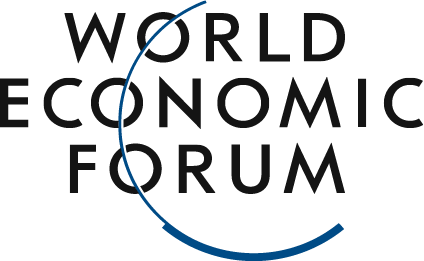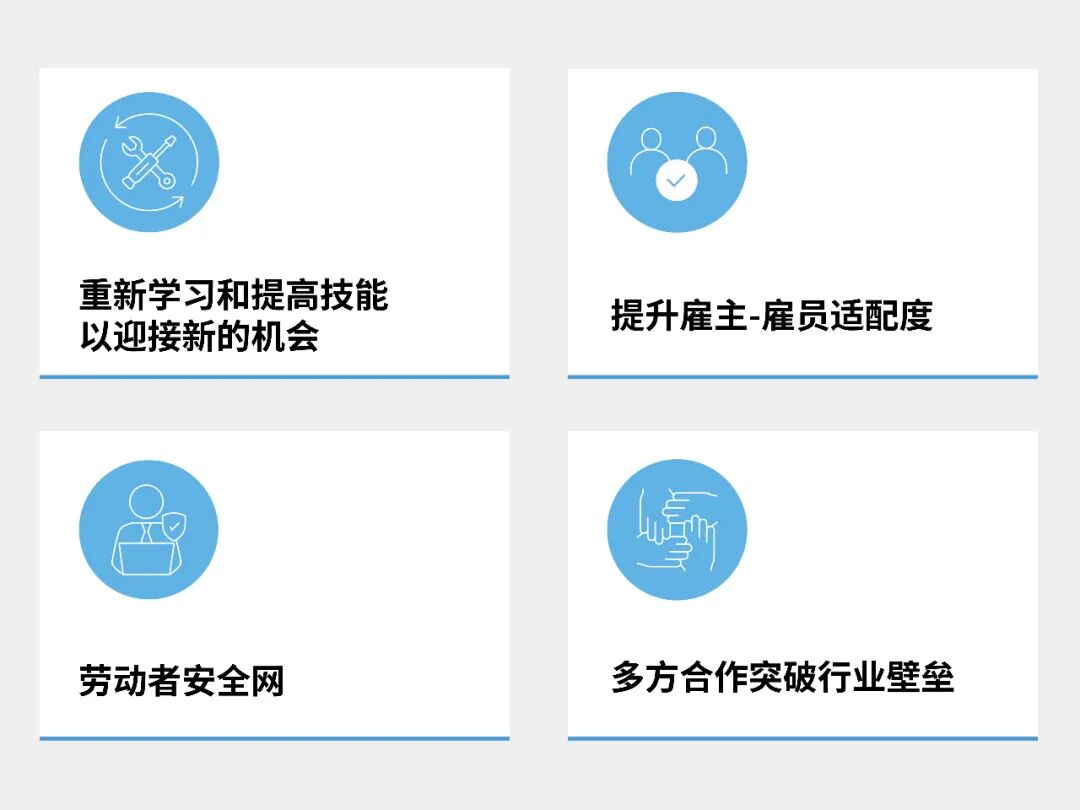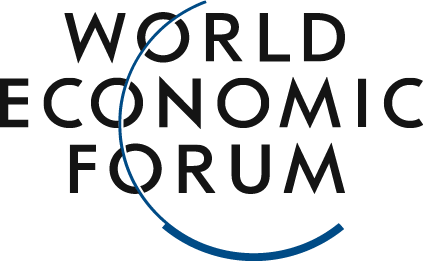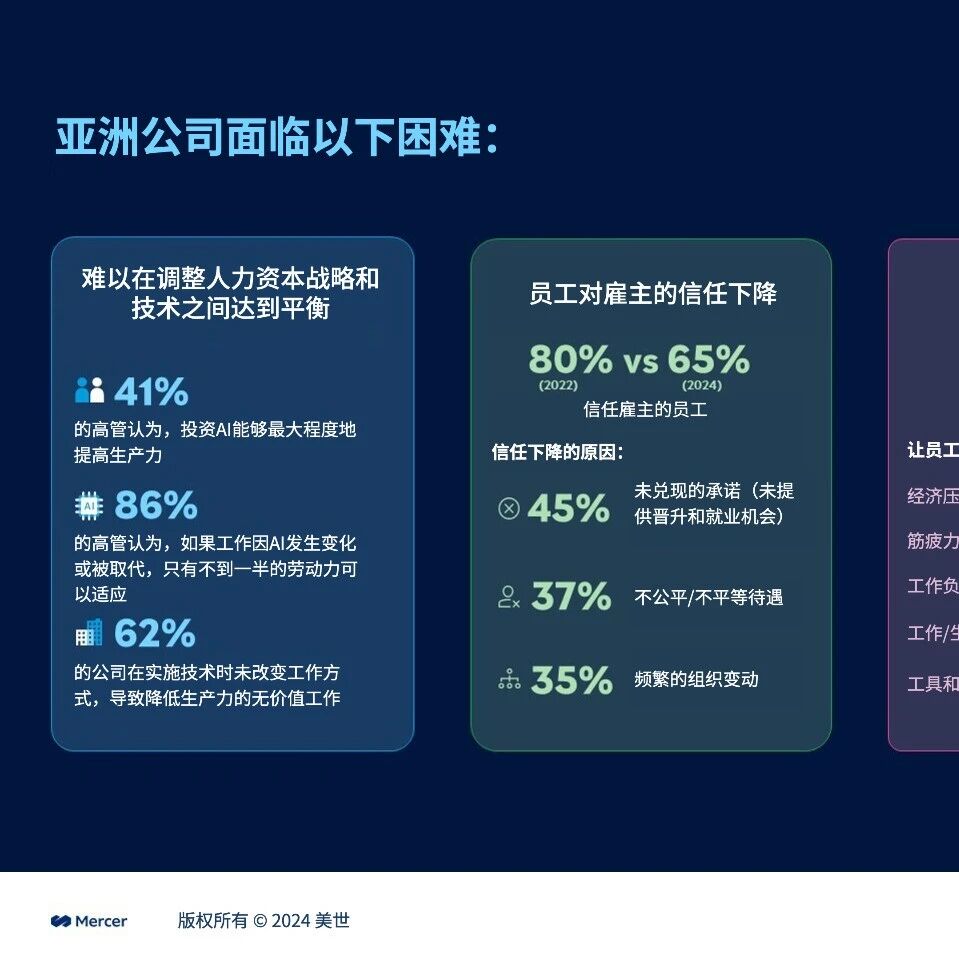The global job market is undergoing transformation, bringing both risks and opportunities.
Image source:Getty Images
Andrew Silva
Head of Jobs and Job Creation at the World Economic Forum
By 2027, 23% of jobs will undergo transformation, with an estimated 69 million new positions expected to emerge—while 83 million existing roles are set to be replaced.
This is a historic shift in employment, driven by the long-term impact of new technologies and the COVID-19 pandemic.
Effectively managing this employment transition to ensure both growth and worker protection is possible, as detailed in a new study by the World Economic Forum.
The global labor market is undergoing profound transformations, driven by technological advancements and innovations, economic shifts, and the ongoing green transition. Particularly noteworthy are the recent breakthroughs in generative AI, as well as the labor market changes triggered by the COVID-19 pandemic—factors that will further reshape employment patterns in the near future.The World Economic Forum's "Future of Jobs Report 2023" forecasts that by 2027, 23% of jobs will undergo transformation, with an estimated 69 million new positions emerging while 83 million existing roles are set to be replaced—resulting in a net loss of 14 million jobs.Protecting workers as job roles evolveThe "2023 Future of Employment Report" also highlights the urgent need to provide adequate social protection for workers who are not covered by full-time employment contracts. Globally, nearly 2 billion people work in informal settings—accounting for nearly 70% of workers in developing and low-income countries, and 18% of those in high-income nations. Given that informal workers are particularly vulnerable to economic shocks and technological changes, policymakers must prioritize this segment of the labor market to ensure short-term income security and pave the way for long-term formalization of workplaces.In this rapidly evolving economic landscape, the forum’s newly released report, "Unlocking Opportunities: A Global Framework for Driving Future Job Transitions," explores the dynamics of workforce transformation and underscores the critical role of adopting a proactive approach to prepare the labor force for emerging roles.Work transformation is not only an inevitable response to the ever-evolving demands of the global labor market, but also a critical mechanism for optimizing economic productivity and enhancing individual well-being. As technological advancements, economic shifts, and the green transition disrupt traditional employment models, workers' ability to adapt to new roles becomes essential for maintaining job security and fostering social mobility.Unlocking opportunities for employment transformationThe report, "Unlocking Opportunities: A Global Framework for Driving the Transition to Future Jobs," finds that strategic management of workforce transitions—through targeted retraining and skills development initiatives, multi-stakeholder collaboration, and robust worker safety nets—can deliver benefits for everyone involved. By fostering these transitions, economies can better align labor supply with demand, reduce unemployment, and enable workers to secure higher-paying, more stable jobs in growing industries. Moreover, proactive workforce transitions help mitigate the negative impacts of job displacement, ensuring that workers aren’t left behind amid economic change—and instead thrive in the emerging opportunities of the new economy.This article builds on the forum's previous research, which mapped out the employment transformation in the U.S. and was published in two papers: "Towards a Reskilling Revolution: Future Jobs for All" and "Towards a Reskilling Revolution: Industry-Driven Action for Tomorrow’s Workforce." Both papers focus specifically on jobs expected to decline in the medium term due to automation driven by technological advancements. To identify how these workers can actually transition into new roles, it’s essential to consider two broad criteria: feasibility and desirability.This latest white paper builds on earlier work by providing a policy framework that fosters workforce transformation, emphasizing retraining and skills enhancement for new opportunities, improving the alignment between employees and employers, strengthening safety nets for workers, and promoting multi-stakeholder collaboration to break down industry barriers.New Trends in Employment TransformationThis article builds upon and expands the geographical scope of "Moving Toward a Reskilling Revolution: The Future of Work for All," which previously focused solely on the United States. Here, the coverage is broadened to include 15 countries across 7 distinct regions, offering a global perspective on emerging opportunities for workforce transformation. For each region, researchers collaborated with Lightcast to gather online job posting data, analyze workforce transition trends, and highlight several case studies that underscore the unique potential of that area.Although our regional analysis provides detailed insights into each country, we’ve identified several noteworthy trends across all the study areas:The number of people transitioning into careers in the business services sector—such as business analysts and sales representatives—is growing rapidly, a trend seen across countries at all income levels.Among the global data analyzed, the shift toward digital roles—such as software development—is one of the most common career paths, often emerging from lower-level technical positions.Career transitions into the healthcare sector are quite common, particularly among physicians and registered nurses. Often, these career changers begin by taking on other roles within healthcare—positions that may be located close to where primary caregivers work, such as health technicians or administrative staff.
The above content solely represents the author's personal views.This article is translated from the World Economic Forum's Agenda blog; the Chinese version is for reference purposes only.Feel free to share this in your WeChat Moments; please leave a comment below if you'd like to republish.
Editor: Wang Can
The World Economic Forum is an independent and neutral platform dedicated to bringing together diverse perspectives to discuss critical global, regional, and industry-specific issues.
Follow us on Weibo, WeChat Video Channels, Douyin, and Xiaohongshu!
"World Economic Forum"






